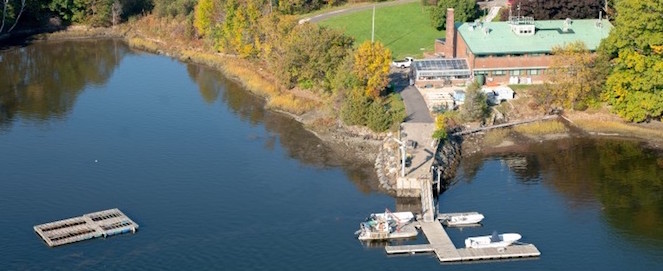
Jackson Estuarine Laboratory
MORPHOLOGICAL VARIATION WITHIN AND BETWEEN NATURAL POPULATIONS OF NON‐TIDE POOL FUCUS DISTICHUS (PHAEOPHYTA) IN NEW ENGLAND12
Abstract
The sources of morphological variation in natural populations of Fucus distichus L. ssp. edentatus (De la Pyiaie) Powell and F. distichus L. ssp, evanescens (C. Agardh) Powell from New England were evaluated. Individuals from different populations were morphologically distinct as judged by population means and analysis of variance. A correlation between the plant's form and its habitat was established by field observation. The broadest material grows in calm estuarine habitats, while the narrowest plants occur in exposed, open coastal areas. Major differences in morphology also appear seasonally. In addition, microhabitat factors such as exposure to wave action and elevation explain some morphological variation. Cultured germlings from distinct populations of “evanescens” and “edentatus” type plants were outplanted to an experimental garden in order to ascertain whether the variation was heritable or environmentally induced. The latter experiments indicate that major differences in morphology are genetically determined.
Publication Date
6-1985
Journal Title
Journal of Phycology
Digital Object Identifier (DOI)
Document Type
Article
Recommended Citation
Sideman, E.J. and A.C. Mathieson. 1985. Morphological variation within and between natural populations of non-tide pool Fucus distichus (Phaeophyta) in New England. Journal of Phycology 21:250-257. (Contribution No. 1233 in the Agricultural Experiment Station Series)
